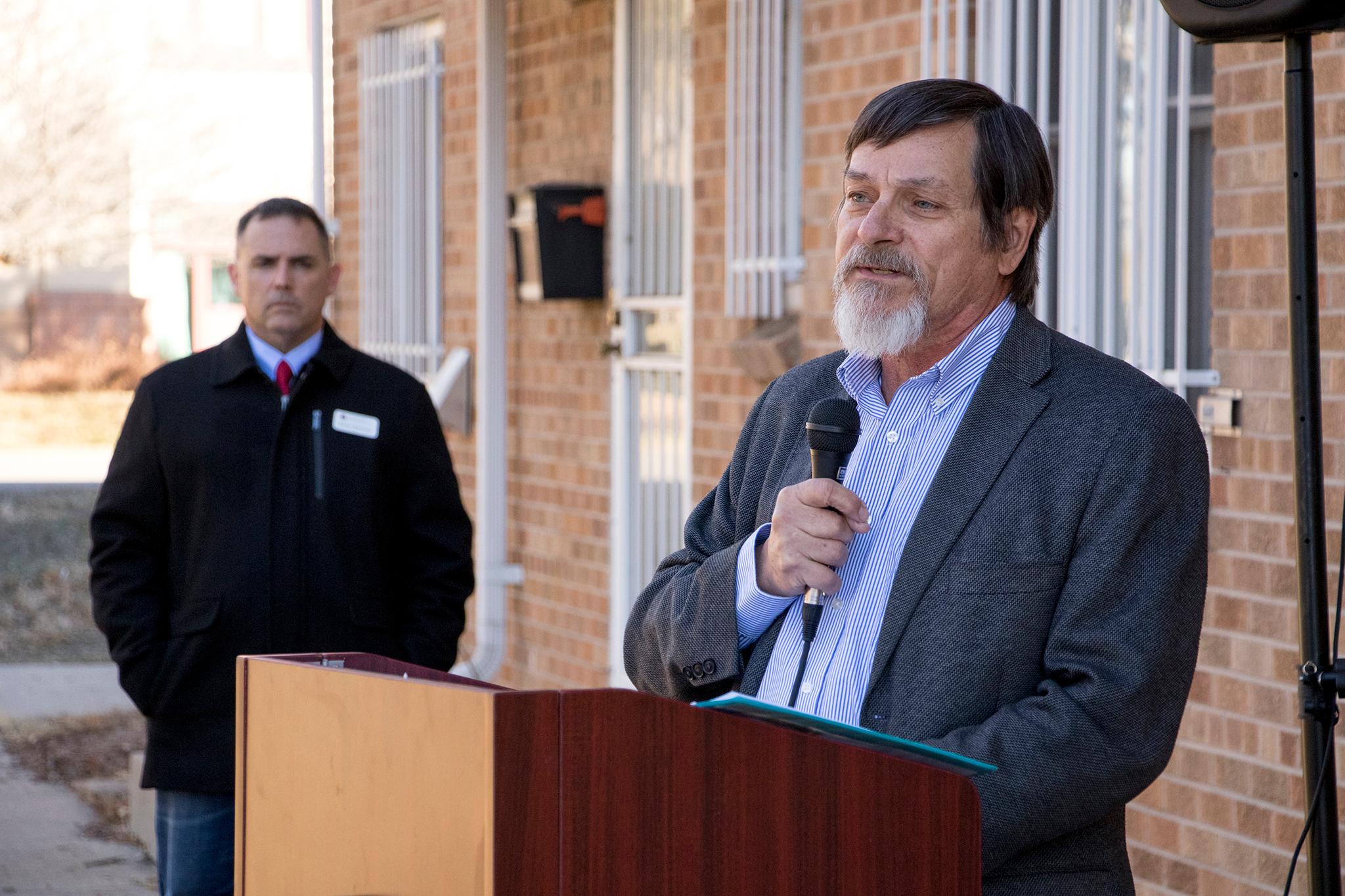A decade after enacting an urban camping ban and with homelessness on the rise, Denver is expanding its housing-first approach to solving homelessness by expanding the Housing to Health program, which will help 125 chronically homeless residents receive services and shelter.
According to the latest Annual State of Homelessness Report from the Metro Denver Homelessness Initiative, 32,233 individuals accessed services related to homelessness between July 1, 2020 and June 30, 2021, in the metro area.
Services for 125 people is a fraction of what's needed, but the impact of such services on individuals is huge, said Mayor Michael Hancock at a press conference, adding the city will solve the issue of homelessness one person at a time.
Housing to Health, which launches July 1, will be funded with $11.75 million from six private funders and up to $5.5 million in a grant from the Department of the Treasury. The amount the federal government distributes will be determined by the quality of the results.
The city first applied for the federal funding, with support from Representative Diana DeGette, in 2019, and a similar program launched in Denver with city bond money in 2016.
Housing to Health will offer support to chronically homeless people suffering from frequent behavioral and mental health issues. The goal: Reduce the number of visits to emergency rooms and other preventable health-care visits the federal government funds, decrease the number of stays in jail, and ensure people have shelter and are able to maintain it.
Officials explained that offering people housing and wraparound services saves taxpayers money. It's been proven over two decades.
Hancock's assertion that the housing-first model works is shared by John Parvensky, the retiring founder and head of the Colorado Coalition for the Homeless, which is instrumental in the roll-out of the program. Parvensky says the resources the city, the private sector and the federal government are making available are not enough, and the city must do more.
Parvensky, who has been working in the field for 36 years, noted that two decades ago the City of Denver launched a housing-first collaborative, where federal, state, city and private sector partners pooled resources to help 100 people get out of homelessness. By the end of the decade, the program was serving 400 individuals.
At the time, he said, housing-first was innovative.
"We chose to do reverse prioritization to those who needed help most rather than those who were judged to be most likely to succeed," Parvensky said. Through that program, participants retained housing in more than 90% of cases. "We were able to demonstrate we could save the city funding, hospitals, the criminal justice system, over and over again."
In 2016, when the city launched its Social Impact Bond, the Colorado Coalition for the Homeless was able to provide the services to another 325 people in partnership with the Mental Health Center of Denver. That effort was also studied to see if housing-first works, Parvensky explained.
"We were able to demonstrate again that housing-first works if you do it right," he said.
Parvensky said the majority of unhoused people accept shelter when what's offered is long-term and accompanied by social services and medical care.
"People don't want to be homeless," he said. "They don't want to be on the streets. Of the first 250 people we outreached to under this SIB program, only one said no to the appropriate offer of housing with wraparound services. So that turns that whole notion on its head."
After five years of the program, the Urban Institute studied Denver's housing-first efforts and determined, once again, they get people off the street, ensure they maintain housing and save money.

At the press conference, Parvensky expressed some frustration that the current funding is dependent on the success of the housing-first program, a model he has watched work for twenty years, as one group of officials after another has sought evidence.
"It seems like a little bit like deja vu," Parvensky said.
"Here we are in 2022, again, trying to prove that proposition that housing first works for people who are high utilizers of health care and high utilizers of the city's jail system," he added.
Policymakers need to invest in this proven strategy, he argued, and at a much larger level.
"To think we're going to help 125 people, when there's 2,000 people in our shelters and 1,000 people in our streets. We know that's not enough," he said. "So we need to build upon these initiatives to get the community support to make sure that we can bring these solutions up to scale."

Hancock concluded the press conference with criticism of the argument that the city isn't doing enough to solve the issue.
"This is the most complex issue in public policy I've ever dealt with," Hancock said. "I've said it 100,000 times. And there are a lot of ideas on how to solve it. The majority of people, of course, who are not in it, believe you should just build housings, and it's done."
The mayor, instead, argued homelessness needs to be solved one soul at a time.
Speaking to the advocates in the room, he said, "Stay in the battle, and do not surrender to the voices who say we're not doing enough. Because we're gonna keep fighting. We're gonna keep investing until we save and return every soul to shelter and stability."











